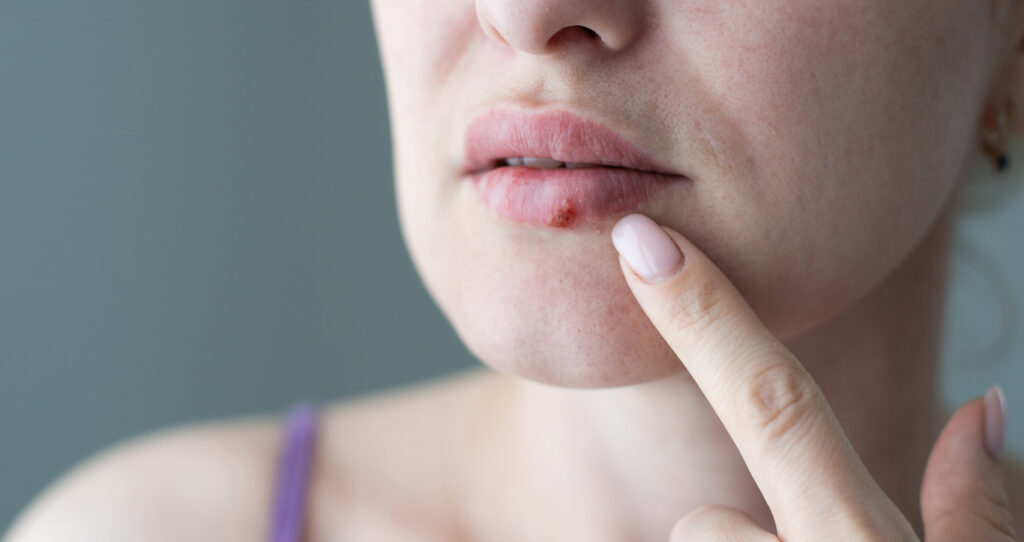What Are Cold Sores?

They’re uncomfortable and can be embarrassing, but what are cold sores? Also called fever blisters, cold sores are most severe the first time you have an outbreak. In fact, children can sometimes get very ill the first time they have cold sores, and even adults can experience burning and pain in the mouth, a sore throat, painful swallowing, a headache, and an upset stomach. Let’s take a look at what’s behind cold sores, how you can prevent them, and how you can find relief if you’re suffering from an outbreak.
Cold sores are tiny, painful blisters, usually found on the mouth and lips but also sometimes on the nose and cheeks. Starting with a tingling, burning, or itching feeling, they progress within 12 to 24 hours into blisters, making the area red, swollen, and painful. The blisters break open and fluid comes out for two or three days, then a scab forms. This scab might crack or bleed, but then it falls off. Cold sores are caused by the herpes simplex virus (HSV). Typically, the body develops antibodies after the first outbreak, which means that future infections either don’t happen or are mild. What causes them, and why do they come back?
The cause of an initial HSV outbreak is contact with someone or something that carries the virus. Kissing a person with HSV can cause cold sores, as can sharing eating utensils, towels, or razors. There are two types of HSV that can cause cold sores. HSV-1 is the one that usually causes them, and HSV-2 primarily causes genital herpes. However, both types of sores can be found in both areas. Even if a person doesn’t have symptoms, he or she can still spread the virus.
Why do they come back? A cold sore outbreak can be triggered by many different things. Some people have outbreaks when they eat certain foods, are exposed to allergens, or experience strong sun exposure or a sunburn. Stress can trigger cold sores, as can fatigue. Some people get cold sores during menstruation, or after they’ve had dental work or cosmetic surgery. Additionally, as you might expect from the name, cold sores can be triggered by the common cold.
For most people, cold sores aren’t particularly serious. However, for newborn babies and people with weakened immunity, they can be life-threatening. While complications from cold sores are rare, they can happen if HSV spreads to other parts of your body. If the virus spreads to the eyes, they become HSV keratitis, a corneal infection that can cause blindness. HSV that spreads to the brain or spinal cord can cause meningitis or encephalitis, dangerous inflammatory conditions.
There’s no cure for cold sores, and while the sores usually go away in a week or two, the virus remains in your body. While you’re waiting for them to heal, you can try home remedies like cold compresses and over-the counter treatments. Healing time can be shortened with antiviral medications, either cream applied to the sores, pills to swallow, or injections. Talk to your doctor about effective antiviral treatments, and prevent future outbreaks, by getting plenty of rest and wearing sunscreen lip balm.
If you experience frequent cold sores, make an appointment with Swinyer-Woseth Dermatology. We’re committed to providing superior, professional skin care in a manner that’s practical, efficient, and compassionate. With over 30 years of experience providing dermatological services in Salt Lake City, we provide a variety of services, from cosmetic skincare to treatment for skin cancer. Our team of board- certified dermatologists and licensed cosmetic service providers are here to provide you the care you need in a comfortable, professional atmosphere. Call (801) 682-4715 or contact us through our website.
